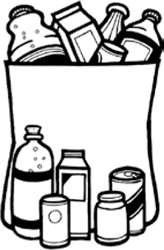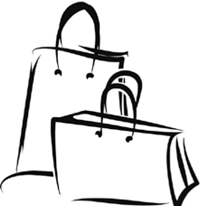Now I Know More (23 page)
Authors: Dan Lewis

THE CIA'S TOP SECRET ANTI-TERRORISM VACUUM CLEANER SCHEMATICS THAT MAY OR MAY NOT EXIST
Vacuum cleaners are pretty great tools. Modern ones can clean kitchen floors, get dust and grime in hard-to-reach places, and of course, clean your carpet. They may even help U.S. government officials thwart a future terrorist attack.
But we don't know, because that's classified.
You've probably heard of Khalid Sheikh Mohammed. The U.S. government, in the official commission report on the September 11, 2001 attacks, deemed Mohammed the “principle architect” of the attacks and has kept him under lock and key since his capture in 2003, most recently in the Guantanamo Bay Naval Prison. Under what officials call “enhanced interrogation techniques,” Mohammed has admitted to masterminding not only the events of 9/11 but also the 1993 World Trade Center bombing, the attempted “shoe-bombing” in December of 2001, and various other terrorist attacks.
These “enhanced interrogation techniques” are controversial; some critics argue that the amount of duress Mohammed and others are subjected to puts into question the validity of any statements elicited this way. The morality, legality, and effectiveness of these methods are a debate for another time, but in order to talk about highly classified vacuum cleaners, let's take as given that “enhanced interrogation techniques” intentionally aim, in part, to inflict some level of psychological strain on the subjects. Further, there could be some long-term effect on a prisoner's sanity due to such examinations.
It should go without saying that keeping Mohammed sane is pretty important; there's a good chance he can provide value to American security interests going forward. But life as a captured, accused terrorist mastermind isn't all that conducive to maintaining one's sanity. According to a report in the summer of 2013, a decade earlier while Mohammed was an American captive in a secret, CIA-run prison in Romania, he requested an activity intended to keep his brain sharp and occupied between interrogations. According to a person only identified as a “former senior CIA official” by the Associated Press, Mohammed asked to design a vacuum cleaner.
According to the source, Mohammedâwho has a mechanical engineering degree from North Carolina A&T State Universityâwanted permission to start drawing up schematics for a vacuum, which would almost certainly never be built. Why he picked this project is unknown, but his military-assigned lawyer, Jason Wright, told the AP that such a project would be in line with Mohammed's passions; while maintaining a great interest in Islam and the Quran, Mohammed also marvels at modern technology.
The CIA allegedly approved Mohammed's request to start drawing. Further, they allowed him access to some online materials, which helped him design his schematic. So somewhere, in some filing cabinet or data warehouse, there may be plans for an improved home-cleaning system, designed by a person widely characterized as one of history's worst terrorists.
We can't be sure, of course, because the CIA won't confirm or deny what the official told the AP. The CIA responded to a Freedom of Information Act request by claiming that the documents, if they exist, would be highly classified operational files of the agency. Wright, on the other hand, approached the AP's question with a bit of humor: “It sounds ridiculous, but answering this question, or confirming or denying the very existence of a vacuum-cleaner design, a Swiffer design, or even a design for a better hand towel would apparently expose the U.S. government and its citizens to exceptionally grave danger.”
Because of Richard Reid and his (thankfully unsuccessful) attempt to blow up an airplane via explosives concealed in his shoe, air travelers in the United States need to take off their shoes when going through airport security and subject them to the package scanners. There's a work-around, though. The Transportation Security Administration (TSA) offers a program called “TSA Precheck,” allowing “low-risk travelers to experience expedited, more efficient security screening at participating U.S. airport checkpoints.” For a nonrefundable $85 application fee, those who qualify can avoid checking their shoes and belts.

THE AFGHAN MERCHANTS REAPING THE SPOILS OF WAR
Soon after 9/11, American troops went to Kabul, Afghanistan, hoping to stop terrorist cells before they could strike again. Kabul has had an American military presence ever since; for the past eight years, some residents there have felt an enhanced economic effect of the troops' presence.
Which is why,
according to the
Washington Post
, some welcome the troops and hope they stay longer.
American soldiers come with guns, tanks, and all sorts of other weaponry, but they also come with other stuff, like snacks and toiletries and various other sundries not typically found in Afghanistan. About eight years ago, a black market of sorts opened in the capital city of this war-torn country. It's named the “Bush Market,” after George W. Bush, the president who ordered the troops to Afghanistan originally. The Bush Market has an estimated 600 shops and booths, selling everything from hair dye and acne medicine to Pop-Tarts and other goodies.
While those items are intended for use by American servicemen, they often find themselves in the hands of Afghan vendorsâsometimes via trade, but most often by way of theft. As the
Post
explains, while most of the items are stolen property, Afghan authorities leave the market alone unless the Americans askâand that is rare. The U.S. authorities tend to leave the Bush Market be, unless something sensitive has ended up there. That hasn't happened in about two years.
Despite the presence of armed men loyal to another nation, many of the vendors want the American troops to remain. These entrepreneurs figure that when the soldiers leave, so goes their shops' inventory. One vendor interviewed by the
Post
even believes that reports of a troop pullout have a negative effect on the marketplace's economy, given the uncertainty about the supply of goods.
Until then? As one anonymous merchant told the
Post
, a lot of Afghans are, by the country's standards, getting “very rich doing this.”
The fact that Pop-Tarts are popular in the Bush Market shouldn't be a surpriseâbut it should be credited as an American success. In 2001, the United States began airdropping food (in the form of military rations called “meals ready to eat,” or MREs) in Afghanistan, hoping to feed some of the millions of people there who were going hungry. Many of the MREs contained Pop-Tarts, which were specifically included to “introduce Afghans to American food,” according to the
Baltimore Sun
. Later reports suggested that the United States dropped well over 2 million Pop-Tarts in Afghanistan that year.

HOW YESTERDAY'S TOYS BECAME TODAY'S COMBAT CURRENCY
If you grew up in the 1990s in the United States, you probably had a few toys that are hallmarks of your childhood. There were Tamagotchi, the electronic pets you had to take care of or else they'd die; Beanie Babies, a menagerie of collectible stuffed animals; and of course, pogs. Pogs were thin cardboard discs, maybe an inch or two in diameter, often branded with something from the pop culture of the day and used in a schoolyard gambling game of the same name.
But the children of the 1990s grew up, and pogs faded as fads tend to do. The next batch of school children moved on to new trends and hobbies. Pogs, by and large, disappeared.
Then, they came backâin American military bases in Afghanistan, of all places.
After 9/11, tens of thousands of U.S. troops were deployed to Afghanistan, peaking at just over 100,000 troops in the summer of 2011, according to
CBS News
. Not everything provided to the soldiers is rationed, and instead, troops are able to purchase items at what is, effectively, a government-run department store or strip mall. Those shops are run by a division of the Department of Defense called the Army and Air Force Exchange Service (AAFES), which, according to Wikipedia, exists “to provide quality merchandise and services of necessity and convenience to authorized customers at uniform low prices.” AAFES also has franchise arrangements with well-known brands such as McDonald's, Burger King, Subway, Starbucks, Home Depot, and video-game retailer GameStop, operating those businesses within or nearby the main store.
Tens of thousand of troops buying stuff means millions of coins in the economy. Unfortunately, that's a problem when the coins come from the United States and the stores are in Afghanistan. Quarters, nickels, pennies, and dimes are heavy in large amountsâ$100 worth of quarters, for example, weighs more than five pounds. Shipping all those coins is prohibitive, so instead, during the U.S. presence in Afghanistan, AAFES issued gift certificates. They also looked for a substitute for coinsâsomething that was as convenient as a coin but without the heftâand pogs were the answer. One hundred dollars in twenty-five-cent pogs weighs only about 15 to 20 percent as much as coins. The AAFES issued pogs in five-cent, ten-cent, and twenty-five-cent denominations. There are no one-cent pogs because, let's face it, pennies are annoying enough without being turned into a throwback to a 1990s fad. (AAFES stores round the cost of purchased items to the nearest nickel.)
Just as they were in middle school lunchrooms, pogs have been popular on military bases. Since their introduction in 2001, pogs have become an accepted currency at AAFES stores around the world.
The word “pog” was, originally, an acronym. POG was a brand of juice; its name stood for its three core ingredients, passionfruit, orange, and guava. The original pogs were the caps from this blended fruit drink, and the name stuck.
One can buy a lot of things at AAFES shops, but one thing a soldier can't buy is the video game
Medal of Honor
. An early version of the gameâbefore it was releasedâallowed players to assume the role of Taliban fighters taking up arms against Americans. Even though the game's publisher, EA, removed this after public pressure (changing “Taliban” to “Opposing Forces”), the game still won't be found for sale at AAFES-run stores.

WHERE TO LIVE WHEN YOU REALLY CAN'T GET ENOUGH OF YOUR LOCAL SHOPPING MALL
The Providence Place Mall in Rhode Island is, as malls go, nothing really all that special. As of this writing, there's a Macy's, a Nordstrom, and a J.C. Penney anchoring its hallways. There's a food court, which connects to a movie theater and a Dave and Buster's. On the street level, there's a P.F. Chang's, a CVS, an Uno's Chicago Grill, and a Cheesecake Factory. Pretty generic, down to the paid parking garage.
But in 2007, the last partâthe parking garageâhad something special: a one-room timeshare apartment.
Make that an illegal one-room timeshare apartment.
